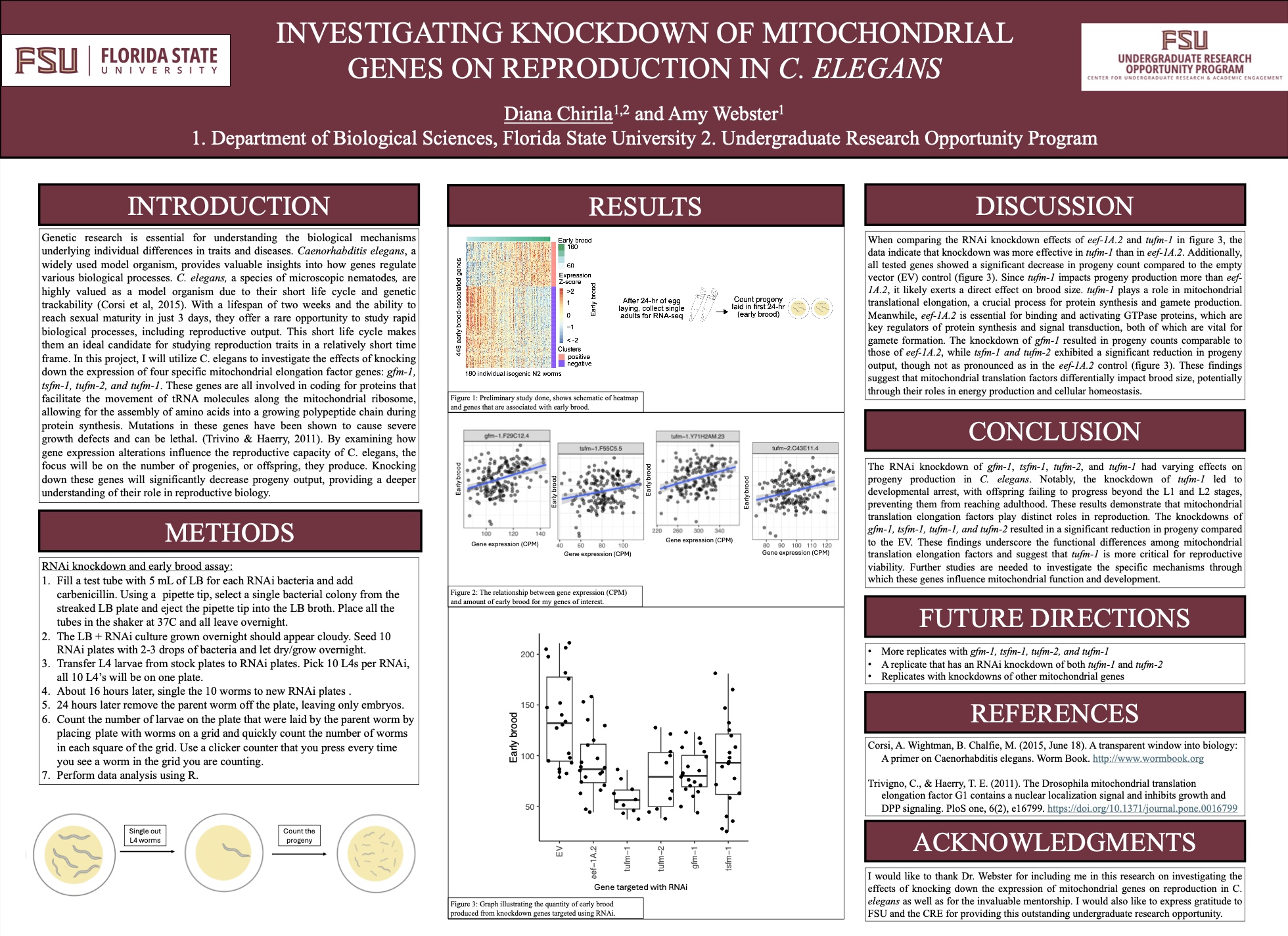Research Symposium
25th annual Undergraduate Research Symposium, April 1, 2025
Diana Chirila Poster Session 4: 3:00 pm - 4:00 pm/ Poster #66

BIO
Diana Chirila is a first-year Honors student and Presidential Scholar at Florida State University, majoring in Behavioral Neuroscience.
Investigating Knockdown of Mitochondrial Genes on Reproduction in C. elegans
Authors: Diana Chirila, Amy WebsterStudent Major: Behavioral Neuroscience
Mentor: Amy Webster
Mentor's Department: Biological Sciences Mentor's College: Biological Sciences Co-Presenters:
Abstract
Genetic research is essential for understanding the biological mechanisms underlying individual differences in traits and diseases. Caenorhabditis elegans (C. elegans), a widely used model organism, provides valuable insights into how genes regulate various biological processes. C. elegans are a species of transparent nematodes, or roundworms, that are about 1 mm in length as adults. Genetically identical C. elegans show varying reproductive output correlated with differential expression of mitochondrial translation elongation genes. This project investigates the effects of knocking down expression of four of these genes, gfm-1, tsfm-1, tufm-2, and tufm-1 on the reproductive capacity of C. elegans. To achieve this, I will use RNA interference (RNAi) to reduce expression of each gene in young adults by exposing individual worms to gene-specific RNAi bacteria. Following RNAi treatment, the progeny laid by individual worms in a 24-hour period will be counted. Data analysis and visualization will be conducted using R. It is expected that the knockdown of these genes will significantly impact progeny production, providing insights into their roles in reproduction. This research has broader implications for human genetics, understanding gene function in C. elegans can contribute to our knowledge of biological pathways, including mitochondrial translation. Due to time constraints, this study is limited in scope, but future research will expand to additional genes and incorporate different experimental assays to understand molecular mechanisms. Preliminary data indicate that knocking down these genes affected progeny count, suggesting that gene expression differences in genetically identical individuals can be causal to affect progeny production.
Keywords: Genetics, Biology, C. elegans, Model Organisms

